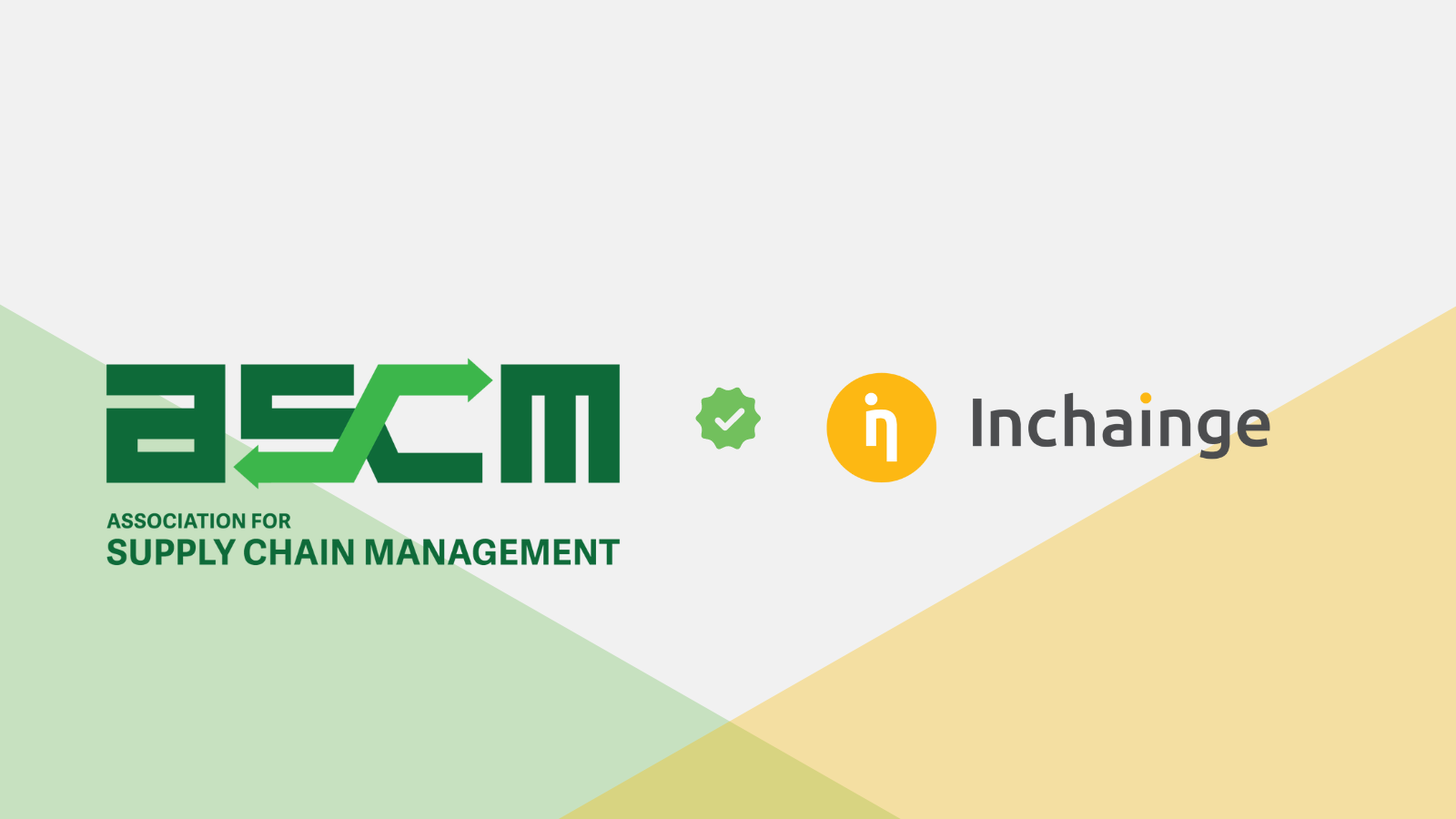
testimonials
JPS and PMI Transform ASCM
Training Programs with Inchainge's Business Games
The forward-thinking initiatives taken by JPS and PMI represent a significant advancement in supply chain management training. These methods not only enhance engagement and practical understanding but also prepare professionals for the complexities of the supply chain industry. By addressing the limitations of traditional training, JPS and PMI are setting new standards for excellence in supply chain management education. Whether it's the balanced transition of JPS's "Add-on Approach" or the immersive experience of PMI's "Blended Integration Approach", the goal remains consistent: forging professionals equipped for the ever-evolving challenges of the supply chain world.
- Traditional SCM training methods are becoming less effective.
- JPS and PMI enhance ASCM courses with Inchainge's business simulation games.
- Two approaches: JPS's Add-on Approach and PMI's Blended Integration Approach.
- Benefits include increased engagement, practical application of theory, and customized training.
- Challenges include cost sensitivity and balancing theory with simulations.
- Overall, these methods do provide a more dynamic and impactful learning experience leading to better results.
Traditional education is no longer working
In the ever-evolving landscape of supply chain management, traditional theoretical training methods no longer deliver the return on education that professionals and companies seek. Paolo Napoli, co-founder of JPS and experienced SCM trainer, succinctly captures this shift: "Traditional education is no longer working." As the demand for more engaging and practical learning experiences grows, the need for innovative training methods becomes increasingly critical.
Integrating Business Games into ASCM Programs
To address this gap, a few partners of the Association for Supply Chain Management (ASCM), including JPS and Production Management Institute GmbH (PMI), have integrated Inchainge's business simulation games into their training programs. These simulations create a blended learning environment, merging theoretical knowledge (ASCM materials) with hands-on practice (game-based learning). Paolo Napoli (JPS) and Andrea Walbert (PMI) share their experience with integrating gamification into ASCM theoretical courses and their two different approaches.
“One of several reasons we believe it’s so successful is that The Fresh Connection and Inchainge’s products allow us to deliver a blended learning experience. This approach allows participants to put the theory that we teach to practice” - Paolo Napoli
JPS: The Add-on Approach
JPS Business Consulting, a Florence-based company, adopts the Add-on Approach. Paolo Napoli, co-founder of JPS and experienced SCM trainer, explains how they incorporate business games like The Fresh Connection for 1 to 3 days following initial ASCM courses. This method allows participants to test their knowledge in a practical setting, enhancing understanding and engagement.
Benefits of JPS’s Approach:
- Easy to Bundle: Pre-defined modules are added to the standard ASCM course.
- Beginner-Friendly: Practical grasp of basic concepts and cross-functional alignment.
- Flexible Training: Tailored to different customer profiles with varying complexity.
- Theory and Practice Combination: Transitions participants "From Strategy to Action."
However, challenges include price sensitivity for smaller companies and limited blended learning depth.
PMI: The Blended Integration Approach
PMI, based in Planegg, Bavaria, adopts the Blended Integration Approach. Andrea Walbert, managing partner at PMI, describes it as a continuous infusion of Inchainge’s business simulation games throughout the ASCM curriculum. This method creates a seamless learning journey, merging theory with hands-on practice (Learning by doing).
Andrea Walbert notes, “Inchainge’s offerings always create awareness and cross-functional team building, bringing the theory to the next level.”
Benefits of PMI’s Approach:
- Integrated Learning: Smooth transition between theory and application.
- Customized Training: Tailored to different experience levels.
- Deeper Knowledge Retention: Frequent practice solidifies understanding.
Challenges include developing trainer skills and balancing theory with simulation sessions. Despite these, the long-term benefits are clear: professionals who can effectively apply concepts in real-world scenarios.
| Aspect | Add-on Approach | Blended Integration Approach |
|---|---|---|
| Flexibility | ||
| Engagement | ||
| Ease of Implementation | ||
| Depth of Experience | ||
| Suitability | Beginners and refresher courses | Beginners and experienced professionals |
| Learner’s Retention | ||
| Customization | ||
| Challenge | Price sensitivity Abrupt theory-practice transition |
Trainer Skill Development Balancing theory and simulation |
Impact
The integration of Inchainge's business games into ASCM training programs has significantly enhanced the learning experience of participants:
- Increased Engagement: Participants remain more engaged as they immediately see the practical implications of theoretical concepts.
- Practical Application: The simulations provide a safe environment for learners to gain real-world experience.
- Customized Training: Both approaches offer tailored training solutions for different experience levels, from beginners to seasoned professionals.
- Deeper Knowledge Retention: Frequent application of theories in simulations helps solidify understanding and improve retention.
Conclusion
The forward-thinking initiatives taken by JPS and PMI represent a significant advancement in supply chain management training. These methods not only enhance engagement and practical understanding but also prepare professionals for the complexities of the supply chain industry. By addressing the limitations of traditional training, JPS and PMI are setting new standards for excellence in supply chain management education. Whether it's the balanced transition of JPS's "Add-on Approach" or the immersive experience of PMI's "Blended Integration Approach," the goal remains consistent: forging professionals equipped for the ever-evolving challenges of the supply chain world.
These are just two examples of best practices in incorporating our games into ASCM training programs. Our versatile tools can be customized and integrated according to your preferences and requirements. We offer comprehensive support throughout the entire process, ensuring that our business games effectively enhance professional learning and development. Contact us today.

Implementing S&OP in Large Corporations: Insights from Experts
"Including the business games into those workshops and supply chain academy sessions was really useful to bring the team together, get a feeling of community, and have fun. You learn a lot when you have fun, it’s an important driver of learning!"
Cyril Fougerouse
Supply Chain Management Expert,
Founder at Supply Chain Sensei

Inchainge Brings Gamification to APICS Certification Maintenance
Utrecht, January 2024 – In a game-changing collaboration, Inchainge, a prominent provider of experiential learning, has joined forces with the Association for Supply Chain Management (ASCM) to introduce a novel approach to earning certification maintenance points for APICS-certified supply chain professionals. Commencing in 2024, ASCM’s APICS certification holders can now accumulate points by participating in training sessions that feature Inchainge’s innovative business simulation games.




